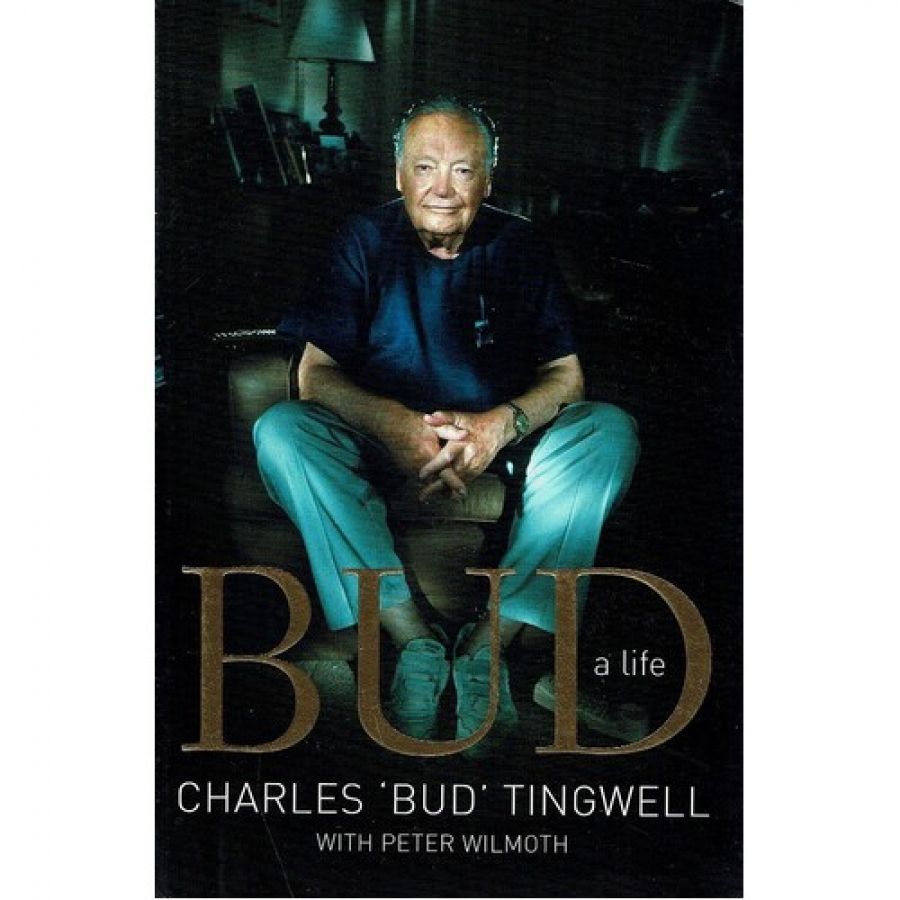
- Free Article: No
- Contents Category: Biography
- Custom Article Title: Nice Guy
- Review Article: Yes
- Article Title: Nice Guy
- Online Only: No
- Custom Highlight Text:
After a few years ago, I had occasion to interview Bud Tingwell, and I remember telling an actress friend afterwards: ‘He talked for two hours without saying anything unkind about anyone.’ ‘Oh,’ she said, ‘he’s famous for it.’ This testimony came back to me while reading this autobiography: clearly not everyone he has had dealings with in his busy life has been sweetness and light, but it goes against the Tingwell grain to say so. What you see with Tingwell is what you get – a craftsmanlike actor and a tolerant, kindly man. The tolerance seems real, the cornerstone of a philosophy that makes him want to think the best of the people who have populated his life. So, if you’re after the kind of theatrical/film memoir that thrives on bitchy gossip, or if you want more bite, even if it means taking in a good dose of malice, look elsewhere.
- Book 1 Title: Bud
- Book 1 Subtitle: A life
- Book 1 Biblio: Macmillan, $30 pb, 356 pp
- Book 1 Cover Small (400 x 600):

- Book 1 Cover (800 x 1200):

Tingwell’s career begins in earnest with a few lines in the opening sequence of Smithy (1946), for which having his own uniform was decisive in his being cast, and he subsequently had his fair share of work in Australian-made films over the next few years. The wholly indigenous Always Another Dawn (1947) and Into the Straight (1949) gave him leads, and there were substantial supporting roles in British and US films made here, including Bitter Springs (1950), for Ealing, and Kangaroo (1951), for Twentieth Century Fox. Fox gave him his brush with Hollywood – a good part in The Desert Rats (1953) – but he turned down the chance of a seven-year contract, returning to Australia for professional reasons.
His brief trip to England to complete his scenes in Ealing’s Australian-set road movie, The Shiralee (1957), however, lasted for sixteen years. Married now to Audrey Wilson, he became an early UK television celebrity for his continuing role in the serial Emergency Ward 10, his contract enabling him to do films as well. Among the dozen he made were, most popularly, the four ‘Miss Marple’ thrillers with Margaret Rutherford, whom he portrays as a woman of touching goodness. It is clear that he became perfectly acceptable as a British leading man, an assessment reinforced by his two-year West End starring run in There’s a Girl in My Soup in the early 1970s, taking over from the archetypal Brit, Donald Sinden.
In his ‘accidental career’, he returned here briefly with his wife and children in the 1970s to see his ageing mother, found himself in demand for television and the revived Australian cinema, and has stayed here ever since, becoming an institution in the process. But ‘institution’ isn’t meant to suggest stasis: he has always been willing to try new things and while doing so has become one of Australia’s most respected actors. In television, he acted in and directed cop shows during the 1970s and 1980s, and in film became a substantial character man. Just when you might think of him as merely ‘dependable Bud Tingwell’, someone to swell a supporting cast, he would suddenly reappear in a lead role, as in Paul Cox’s sensitive and acute study of late-returning love, Innocence (2000), or, even more remarkably, the theatrical solo-piece Carer, which has toured Australia. And the smart young team that produced television’s Frontline gave him the beautifully written role of the barrister defending the stay-put family in The Castle (1997). This latter was one of the jobs that enabled Tingwell to cope with the death of his wife, which he treats in his book with affecting simplicity and feeling.
The success of his long career is partly explained by doing whatever came along, being well prepared, not being a temperamental nuisance and his readiness to help others, young people particularly. This last point is evident in his recent role in young Melbourne filmmaker Rob Sutherland’s inventive mystery, Inside Story, made without the usual financial props and indebted to Tingwell’s participation.
The book has no index and needs one; Tingwell’s collaborator, Peter Wilmoth, should have pruned some of the prolific ‘wonderfuls’ and ‘beauts’; there is sometimes a sense of skimming over episodes involving tension that might have repaid exploring. What emerges, though, is a conversational, reminiscent account of a life lived fully. There is something touchingly guileless and appreciative about this dedicated actor and family man who believes he’s been lucky and has never ceased to value that.


Comments powered by CComment